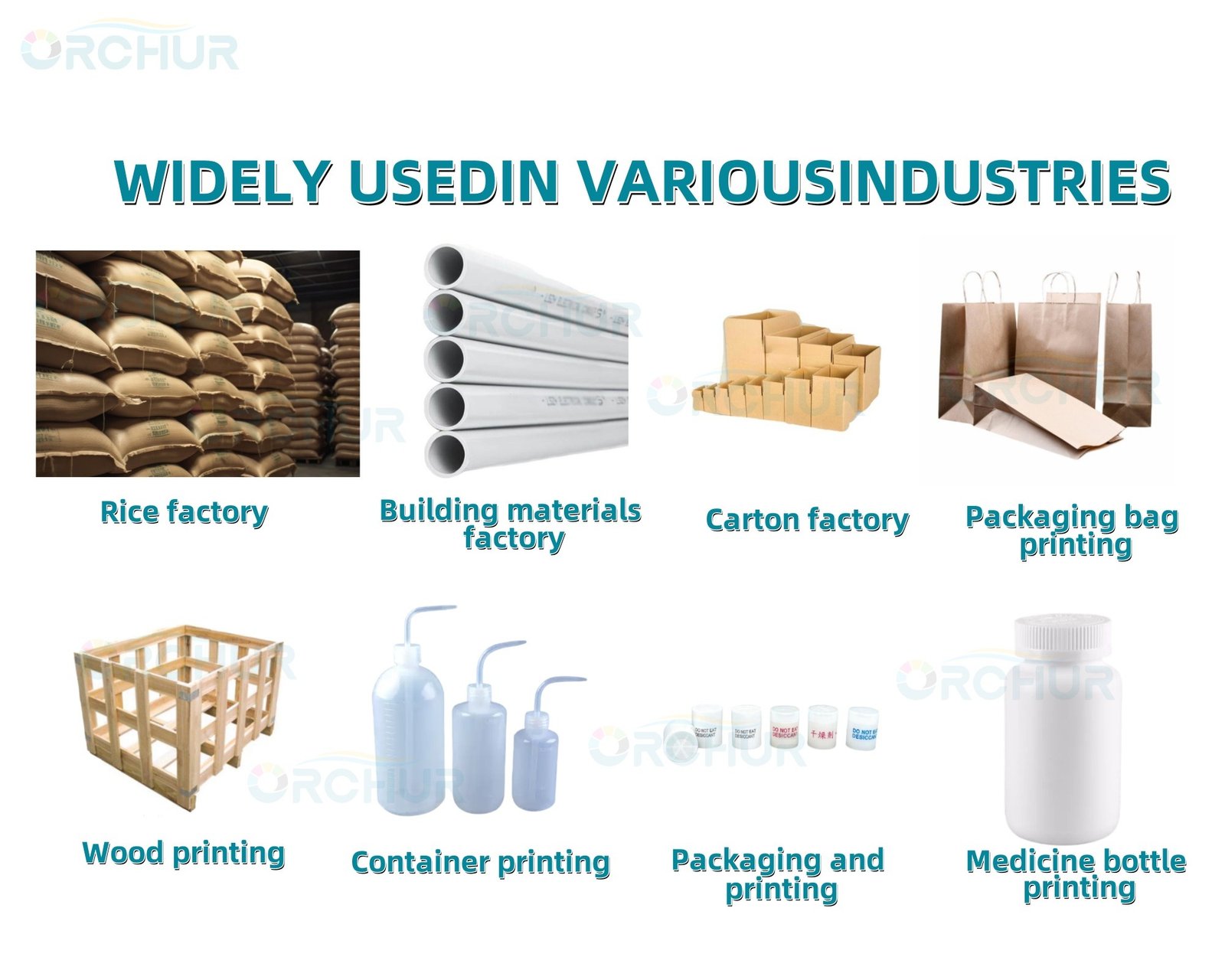What Is an Inkjet Printer? A Comprehensive Guide to Understanding Inkjet Printing Technology
Discover what an inkjet printer is, how it works, and its applications across various industries. Le
What Is a Handheld Inkjet Printer and How It Works
Table of Contents
ToggleIn modern manufacturing and packaging, a handheld inkjet printer puts precision, mobility, and reliability into the operator’s hand. Unlike bulky industrial coders or manual stamping, these compact devices—often called batch code printers or expiry date printers—streamline on‑demand marking across countless surfaces. This guide explains the core technology behind ORCHUR’s handheld inkjet solution, highlights key features, explores real‑world applications, and offers practical advice for commercial users worldwide.
A handheld inkjet printer employs piezoelectric or thermal inkjet heads to fire tiny droplets of fast‑drying ink onto a substrate. The printer’s intelligence comes from:
Variable‑drop printheads that adjust droplet size (2–12.7 mm or up to 2–25.4 mm print height).
Microcontroller‑driven motors for precise head positioning over speeds ranging from 2 mm to 1,000 mm per second.
On‑board memory and software to render texts, logos, barcodes, and 2D codes in a single pass.
Portability
Weighing only 513.512 g and sized at 14.5 × 5.3 × 22.5 cm, it fits in one hand.
On‑Demand Coding
No fixed assembly line: print on pallets, crates, pipes, textiles, and more in any location.
Adjustable Print Range
Print heights from 2–5 mm (fine text) up to 12.7 mm or 25.4 mm for bold batch codes.
Multi‑Language Interface
5″ capacitive touchscreen (1,280 × 720) supports 12 languages, including English, 简体中文, Deutsch, Español, and more.

When evaluating a small inkjet printer, commercial users should consider these criteria to ensure investment value:
Weight: At just 513 g, operators avoid fatigue during long shifts.
Dimensions: 14.5 × 5.3 × 22.5 cm—the ORCHUR model fits most tool belts and knapsacks.
Resolution: Up to 600 DPI for crisp text, variable barcode and variable QR code clarity.
Ink: Quick‑dry solvent‑based formula resists smudging on ABS, metal, glass, fabric, and paper.
Power: 3,000 mAh battery delivers up to 6 hours of continuous printing.
Display: 5″ capacitive touchscreen lets users preview batch code printer output and adjust text or images on the fly.
Connectivity: USB/Type‑C port and optional Bluetooth for remote template updates.
A truly versatile handheld inkjet printer for clothes, packaging, and industrial parts must handle diverse materials:
Plastics (ABS, PVC, PET): batch codes, logos
Metals (steel, aluminum): expiry dates on cans or pipes
Paper & Cardboard: carton lot codes, brand marks
Textiles: cotton, denim, non‑woven bags
Glass & Ceramics: date stamps on jars, bottles
Wood: pallets, crates, furniture components

Handheld inkjet printers serve countless sectors. Below are three major commercial use‑cases:
Producers must print expiration dates and lot numbers on flexible packaging and trays. ORCHUR’s expiry date printer prints at 2 mm–12.7 mm heights, ensuring compliance and traceability.
Manufacturers of cables, pipes, and metal parts use handheld coders for on‑site identification. The batch code printer prints variable data at speeds up to 1,000 mm/s—ideal for high‑volume lines.
Brands add logos, SKUs, and QR codes directly onto product packaging. The portable design allows on‑demand customization in warehouses or pop‑up shops.
A European beverage company faced high rework rates when manually stamping lot codes on cartons. After deploying ORCHUR handheld printers:
Rework dropped by 80% thanks to 600 DPI precision.
Line speed increased from 200 units/hour to 600 units/hour.
Operator training time reduced by 50%, thanks to the intuitive touchscreen interface.
This real‑world win underlines why a portable coding printer is essential for modern production.
Selecting the right handheld inkjet printer involves balancing mobility, print quality, and ease of use. Key takeaways:
Prioritize print resolution (≥300 DPI) for clear barcodes.
Verify ink compatibility with your substrates (ABS, textiles, metals).
Assess battery life and recharge options for uninterrupted shifts.
Choose a multilingual interface if operating in global environments.
Call to Action
Ready to upgrade your coding process? Contact ORCHUR today for a free demo and sample prints. Discover how our handheld inkjet printers can revolutionize your traceability and packaging workflows.
Discover what an inkjet printer is, how it works, and its applications across various industries. Le
Discover the ORCHUR handheld inkjet printer: ultra‑fine 600 DPI marking on metal, plastic, cardb
Discover how ORCHUR’s handheld inkjet printer makes DIY apparel easy. From T‑shirt printing to f